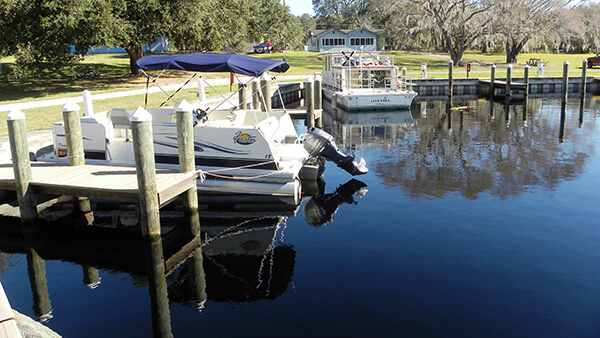
Petroleum Control and Spill Prevention
A single gallon of fuel can contaminate 750,000 gallons of water. The cumulative effect of multiple small spills can have a serious impact on our environment. Fuel can be easily spilled into surface waters from the fuel tank air vent while fueling a boat, and oil can be easily discharged during bilge pumping. Gasoline spills can be a safety problem because of gasoline’s flammability. Hydrocarbons are dangerous to aquatic plants and animals both at and below the water surface. Vessels 26 feet and longer are required to display a U.S. Coast Guard oily waste discharge placard. Clean Water Act, Section 311 10.
Actions to Take While Fueling:
- Fuel your boat on the upland.
- Listen to your boat. The tank gurgles before it’s full.
- Keep your hand on the nozzle. Do not use the handle stop.
- Use a vent collection device to capture escaping fuel.
- If your tank overfills, use rags for cleanup. When finished cleaning, give soiled rags to the marina operator for proper disposal.
- Do not hose off spilled fuel into the water.
- Notify marina management immediately if a fuel spill occurs.
- Do not use soaps or detergents on spills. This makes the problem worse and violates federal law.
Actions You Can Take for Bilge Oils:
- Use a proper preventative maintenance schedule to reduce oil contamination.
- Do not discharge bilge water overboard while on the water.
- Keep engines tuned and in fine working condition.
- Regularly check seals, gaskets, hoses, connections and fittings for leaks, drips and damage.
- Clean and maintain bilges. Do not use detergents for cleaning.
- Use absorbent pads to remove oil from the bilge. Oil absorbent or bio-remediating bilge booms work great.
- Before pumping bilge water, use water/oil separators or absorbents to soak up any loose oil.
- Trailer your boat to an area that provides containment for bilge and boat plug discharges.
- Recycle or properly dispose of used oil and absorbent material.